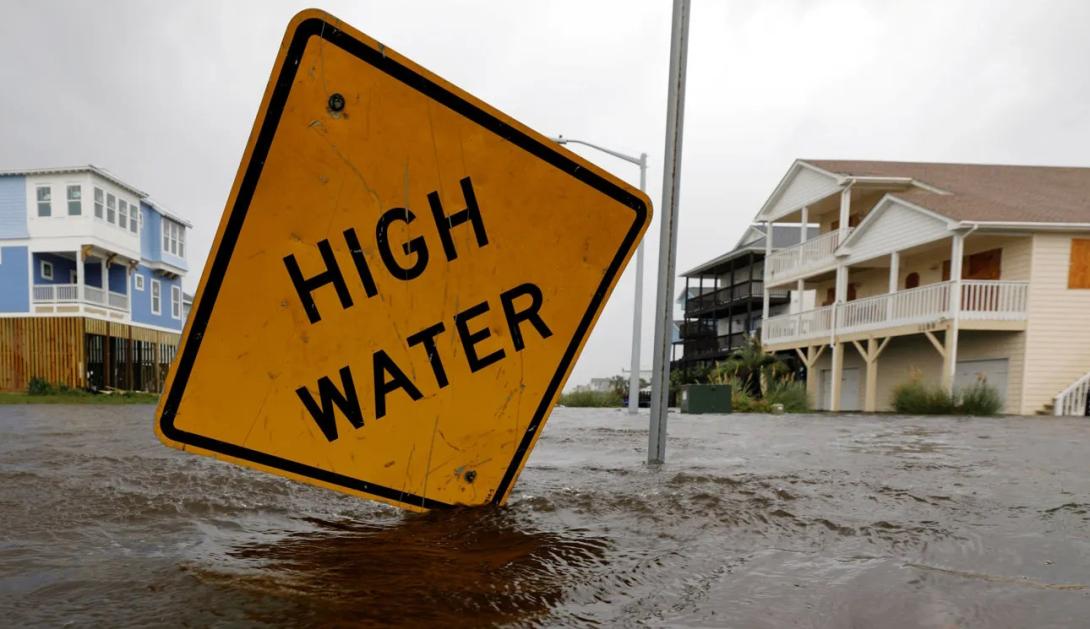As we continue to burn fossil fuels, the atmosphere continues to warm up. Which means it holds more moisture. Which means when it rains, it comes down harder and faster. Which means there’s an increase in flooding. In the northeast, extreme rain and snow storms have increased about 60% since the 1950’s.
Nationally, these extreme weather disasters are occurring more often, costing an average of a billion (yes, with a B) dollars. In the US, we used to come up against (on average) a billion-dollar disaster about every four months. Now, the average is every three weeks. All of this is unsustainable.
The Natural Resources Conservation Service (NRCS) is a part of the US Department of Agriculture and assist with disaster recovery. What they claim to be observing more now are watersheds changing much faster than they used to, due to extreme storms causing more damage. Matt Brown, an official with New Hampshire’s NRCS office, noted the challenges caused by these changes are becoming larger than what the agency might be equipped to manage in the future.
(Watershed: an area or ridge of land that separates waters flowing to different rivers, basins, or seas.)
Climate Central, a nonprofit independent group of scientists who research changes in our climate have analyzed average winter temperatures for more than 200 locations nationwide, including Concord. From 1970-2022, Concord's average rate of warming was 6.6 degrees, placing it as one of the Top 5 winter warming locations.
In some NH towns, officials are trying to come to the aid of their townspeople but are discovering they don’t always have the needed resources. For example, the roads and culverts in the town of Gorham experienced much damage during some flooding this past December. The Androscoggin, Moose and Peabody rivers overflowed their banks, now the town is looking to classify floodplains.
Conway has experienced three 100-year floods in thirteen years, with town officials calling Dec.’s flooding the worst ever seen, leaving some town roads shut down. The town is now attempting to determine how best to protect neighborhoods in low lying areas.
Lack of natural snowfall and fluctuating temperatures have challenged snowmobile businesses during the past several years, causing snowmobile registrations to go down. As we are seeing, warmer winters equal shorter snowmobile seasons, with this past winter a majority of NH’s snowmobile trails closing the first week in March. Ski resorts are able to make artificial snow, but they too, have faced challenges because of shorter winter seasons. This in turn, hurts the winter tourism economy which is the state’s second largest contributor. A lot of these businesses depend on what amounts to about $70 million in revenue.
In response, there have been bipartisan bills brought forward recently to address this issue. SB 493 would have established municipal emergency disaster relief loan funding to help municipalities in a natural disaster. On Feb. 8th it was referred back to Interim Study. HB 1488 had to do with hazard mitigation funding. On Feb. 15th it was referred back to Interim Study. HB 1466 would have provided disaster relief funding to municipalities after a natural disaster. On May 15th this bill was also referred back to Interim Study.
(Interim Study: a procedure which legislators use to explore complicated policy topics during the time in between regular legislative sessions. The purpose is to gather research sometimes involving public committee meetings where people testify on the topic. The study itself is not binding.)
If you are concerned about extreme weather becoming the norm, ask your candidate(s) how they feel about this topic and if they plan to address it with urgency.
“Science is the key to our future, and if you don’t believe in science, then you’re holding everyone back.” Bill Nye, the science guy
“This is not a one time thing. This is our entire future.”
Greta Thunberg, climate activist

